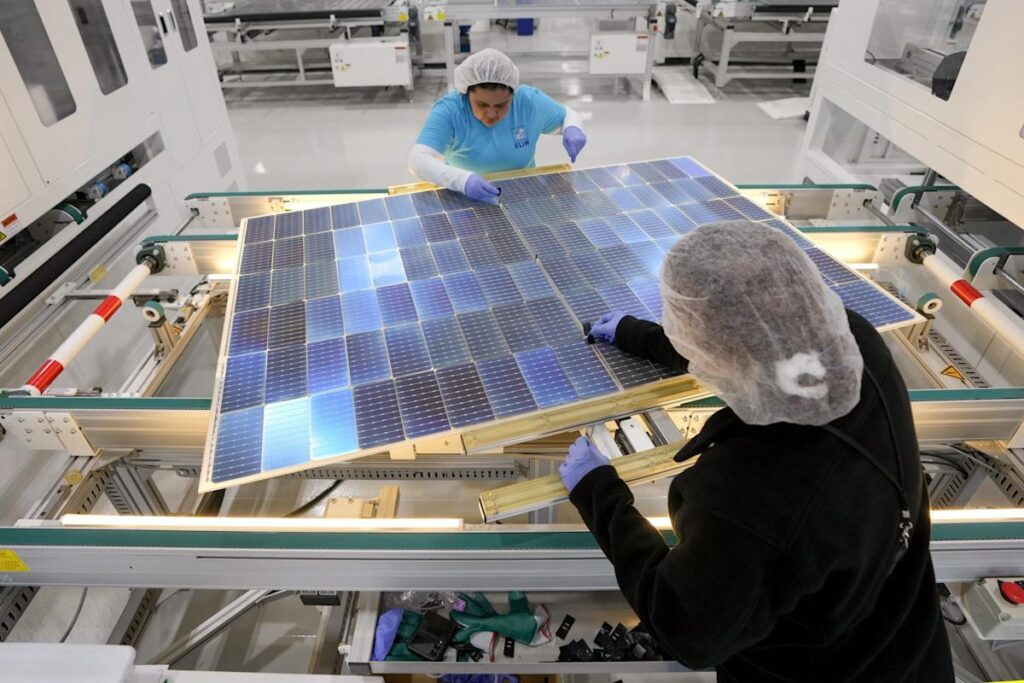The Dallas Fed’s latest manufacturing outlook survey showed sentiment has take a steep dive in the last month, plunging into negative territory, with executives flagging President Donald Trump’s tariff policies as a top source of concern. That’s in line with a range of other indicators that show economic activity and consumer confidence is worsening.
Most of President Donald Trump’s tariffs have not taken effect yet, but they have spooked business executives, even in parts of the country that helped put him back in the White House.
Trump has imposed tariffs on China, with duties on Mexico and Canada due to take effect on Tuesday, and higher levies on steel and aluminum coming later this month. He has also called for tariffs on autos, pharmaceuticals and chips, while threatening so-called reciprocal tariffs and duties on the European Union.
The Dallas Fed’s latest manufacturing survey showed sentiment has take a steep dive in the last month, plunging into negative territory, with respondents flagging the threat of tariffs as a top source of concern.
The production index, a measure of manufacturing conditions, sank 21 points from January to -9.1 in February, according to data released on Monday.
Other readings in the survey showed similar collapses. The general business activity index tumbled 22 points to -8.3 and a gauge of new orders fell 11 points to -3.5.
An indicator for hiring went flat, while another for the number of hours worked hit the lowest since mid-2020. Executives also reported sharply higher cost pressures on raw materials and finished goods.
Expectations also turned bleak. The company outlook index plunged 24 points to -5.2, the future general business activity index nosedived 27.8 points to 7.7, while the uncertainty index shot up by 29.2 points.
Such sudden pessimism is notable given the Dallas Fed covers Texas, northern Louisiana and southern New Mexico—areas that voted for Trump by wide margins in 2024.
By contrast, nationwide consumer confidence surveys have turned more partisan, with sentiment among Democrats tanking when a Republican becomes president, and vice versa.
«As an assiduous reader of the comments in the Dallas Fed’s surveys, their survey pool tends to voice many more conservative takes on the economy than liberal ones,» Comerica Bank chief economist Bill Adams wrote in a note Tuesday. «The fact that even this survey weakened in February, with many mentions of tariff and trade uncertainty, demonstrates that concern about trade war and inflation is crossing partisan lines.»
Story Continues


